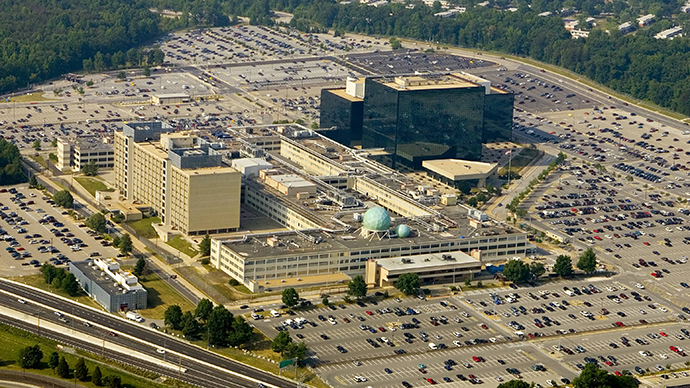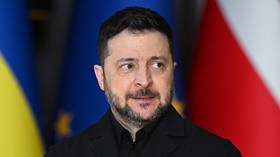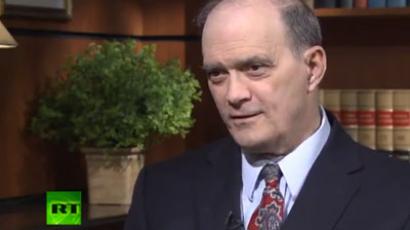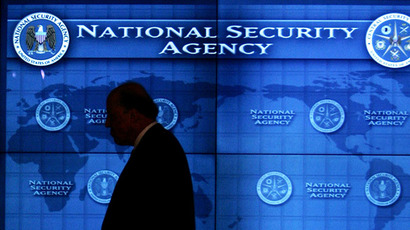NSA mass spying undermines journalists and attorneys’ ability to work

Dozens of journalists and attorneys surveyed by the American Civil Liberties Union and Human Rights Watch for a new report say that the United States government’s surveillance operations are eroding their ability to work.
The results of the collaborative effort between the ACLU and HRW was published on Monday this week and contains a number of chilling accounts from Pulitzer Prize-winning reporters and acclaimed attorneys alike who say the US government’s spy programs have put a damper on their professions.
After surveying 92 participants — 46 reporters, 42 lawyers and a handful of current or former government officials — the authors of the 126-page "With Liberty to Monitor All" study conclude that US surveillance practices are “harming journalism, law and American democracy” by making it increasingly difficult for professionals tasked with keeping governments accountable and preserving justice from accomplishing as much.
In the wake of last year’s National Security Agency disclosures, the report found, journalists and attorneys who handle sensitive information are changing their work habits and how they communicate to keep personal details private and prevent government eavesdroppers from interfering.
“Freedoms of expression and association, as well as rights to a fair trial, are protected by the Constitution, and US officials speak with pride of the freedom of the media to report on matters of public concern and hold government to account for its actions,” the paper reads in part. “Yet, as this report documents, today those freedoms are very much under threat due to the government’s own policies concerning secrecy, leak prevention, and officials’ contact with the media, combined with large-scale surveillance programs.”
Several of the people surveyed told the study’s authors that they’ve drastically altered the way they do work in order to elude federal investigators: US President Barack Obama’s precedent-setting number of leak prosecutions has made national security sources more hesitant than ever to speak with reporters, and attorneys tasked with keeping their clients’ details safe told the ACLU and HRW that they fear they’re being spied on as well.
Among the chances those professionals have made to counter those fears, the report reveals, are tactics that range from relying on encrypted email and burner phones, to sending information through the Postal Service instead of the web and making fake travel plans to confuse any curious government eavesdroppers.
“I don’t want the government to force me to act like a spy. I’m not a spy; I’m a journalist,” one prominent reporter told the researchers.
“I’ll be damned if I have to start acting like a drug dealer in order to protect my client’s confidentiality,” added national security defense attorney Tom Durkin.
Nancy Hollander, the lawyer for convicted WikiLeaks source Chelsea Manning, told interviewers that she now concludes every professional email with a warning: “Based on recent news reports, it is possible that the NSA is monitoring this communication.”
“If the US fails to address these concerns promptly and effectively,” report author G. Alex Sinha writes, “it could do serious, long-term damage to the fabric of democracy in the country.”














